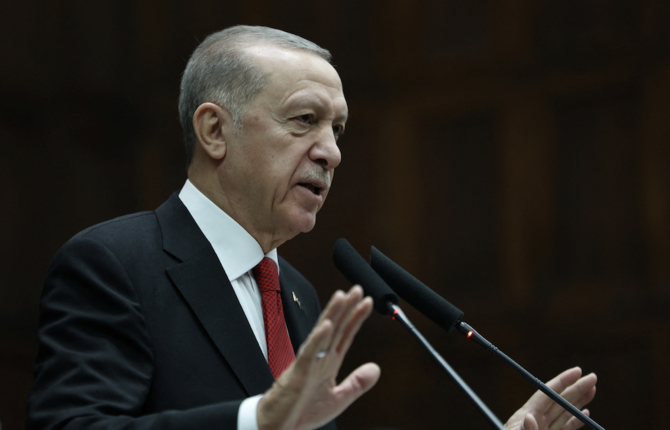Yasar Yakis
When the Turkish economy was riding high in the first years of President Recep Tayyip Erdogan’s Justice and Development Party’s rule, it paid only lip service to the proper management of the economy. This is because the AKP had inherited the solid rules introduced by Kemal Dervis, the former vice president of the World Bank for the Middle East and Africa region, who had been invited to Turkiye to rescue its ailing economy.
Dervis served as the minister of finance and treasury in 2001 and 2002, when the present main opposition Republican People’s Party was in power. After Erdogan came to power, he continued to support Dervis’ policies. Though Dervis only served as Turkish economic minister for that brief period between March 2001 and August 2002, he had the experience of a 22-year career at the World Bank. When the AKP won a landslide election victory in November 2002, Erdogan did not want to undo the solid foundations that Dervish had laid. For more than a decade and a half, the Turkish economy managed to float, but it started to lurch after the rules introduced by Dervish became obsolete.
Two years ago, Erdogan’s government introduced a new system that caused further deterioration in the national economy. It was called the “exchange rate-protected deposit” scheme. This mechanism was to function as follows: Irrespective of the fluctuations in the value of the Turkish lira against other currencies, lenders to the banks would not be negatively affected. This is nothing but a deviation from one of the golden rules of economics. If the exchange rate changed in favor of the foreign currency, the bank would update the exchange rate according to the new value of the Turkish lira. This method favors the richer segments of Turkish society because they can benefit from the increase in the value of the foreign currency, but not suffer from the loss in the value of the Turkish lira. In other words, those who can put money into their bank accounts will be protected from the depreciation in the value of the Turkish lira, while the poorer segments of society will be the losers.
So, the exchange rate-protected deposit system tilted the balance further to the detriment of the disfavored segments of society. It took more than a year for the government to wake up to this reality. After the elections held in May this year, Erdogan carried out a major reshuffle of the bureaucracy in charge of economic affairs. Two economists stood out among these appointments: One was Mehmet Simsek, who returned as finance minister, and the other was Hafize Gaye Erkan, the new governor of the central bank. Simsek was an important figure in the AKP, but he did not agree with all that Erdogan had in mind. He was born to a Kurdish family in the southeast of Turkiye, close to the Syrian border. He comes from a modest family. He is the youngest of eight siblings. His parents did not speak Turkish. He learned Turkish after he went to school. He graduated from the Faculty of Political Science at Ankara University as the second-best student in his class. This school was established in 1859 in the Ottoman era to train high-level bureaucrats.
In his capacity as finance minister during his first spell in the Cabinet, Simsek formulated the fiscal policy of Erdogan’s government. This helped Turkiye recover from the global financial crisis of 2008. He simplified tax regulations, enhanced taxpayers’ rights and contributed to reducing the shadow economy. He worked as the chief economist and strategist for the emerging Europe, Middle East and Africa region for Merrill Lynch in London for seven years.
In 2013, he was designated as one of the most influential 500 people in the world by US magazine Foreign Policy and was awarded the title of Finance Minister of the Year for Emerging Europe for the year 2013 by Emerging Markets magazine. Simsek fiercely opposed politicizing the transactions of the central bank. When Erdogan understood that the central bank had to be kept above political considerations, he again knocked on Simsek’s door. The latter hesitated for a while before eventually agreeing to be reappointed as minister of finance. It appears that Simsek was not eager to assume the responsibility for another collapse of Turkiye’s economy.
Erdogan, seeing that the economy might collapse if it was put in incompetent hands, decided to accept the conditions put forward by Simsek. The latter did not promise miracles. He simply asked that the sound rules of economics be applied. So far, there have been no signs of an early recovery, but the Turkish economy is not deteriorating either. Trust is an important factor in the economy. The second important step in recovering the Turkish economy from the brink of possible collapse was the appointment of Erkan as governor of the central bank. She was recruited in 2005 by Goldman Sachs in the US. After nine years of service, she was transferred in 2014 to First Republic Bank, where she became the chairperson of the investment division and co-chairperson of the risk management department. In June 2016, she became the chairperson of the deposits division and, in 2017, the chairperson of the bank’s administrative board. During her tenure, the total value of First Republic Bank increased from $97.7 billion in 2017 to $181 billion in 2021.
These two appointments changed the course of the Turkish economy. Nothing tangible has yet occurred since they took up their roles, but there is an optimistic forecast for the future. If Erdogan, for the sake of winning the local elections to be held next May, does not again step in with unorthodox rules, a slow recovery may be expected by the middle of next year.







